Journey through soil full of life – Italy part 1 –
Learning sustainability by doing: A young woman’s journey to Italy
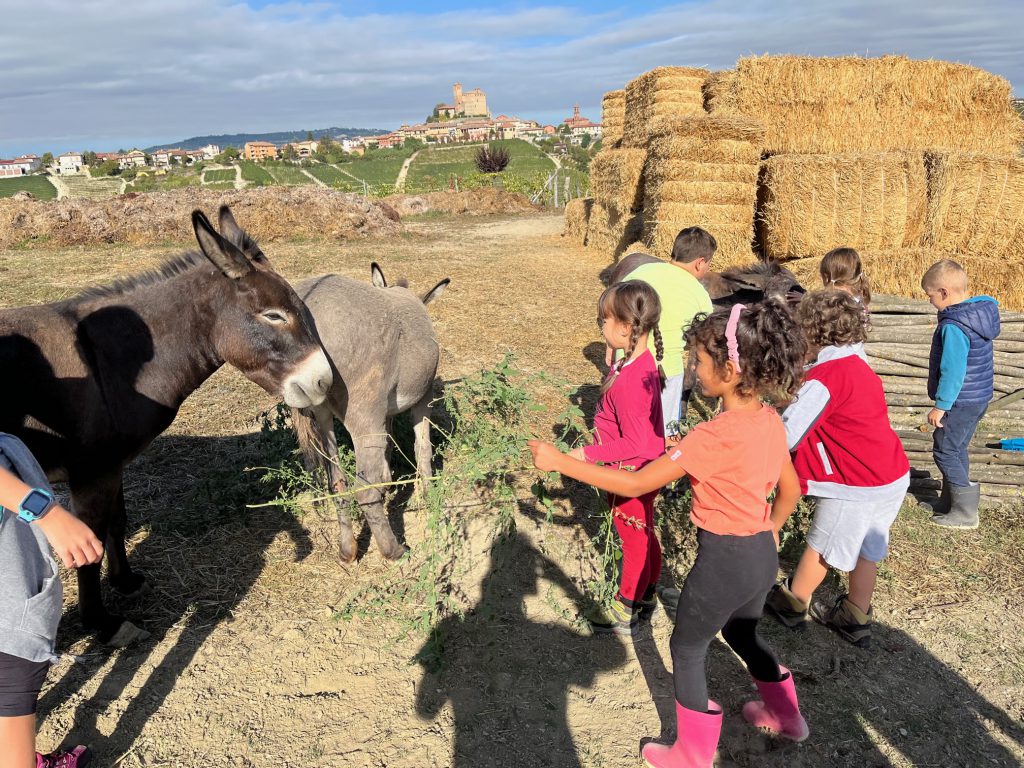
The story of Mother Earth will present to you accounts of experiences associated with the soil, both in Japan and abroad. The first installment in a four-part series is the story of Kosuzu Ishizaka, who journeyed through northern Italy.
Journey through soil full of life – Italy –
Part 1 : Learning sustainability by doing
– A young woman’s journey to Italy –
Part 2 : Rivetto’s vineyard-garden in the heart of the Italian Barolo region (Piedmont)
– The challenge to increase biodiversity through winemaking –
Part 3 : Eta Beta, the social cooperative rebuilding people’s lives through work (Bologna)
Part 4 : Self-sufficient Venetian communities created edible gardens all over the island(Venice)
“We should strive to explain things less and just let people feel” (Kosuzu Ishizaka)
Kosuzu Ishizaka was raised surrounded by the nature of Kunuginomori forest and Santome Konjaku Mura and with environmental values embedded in her upbringing. Her mother, Noriko Ishizaka, is Ishizaka Sangyo’s second-generation president and as the leader of the state-of-the art recycling and organic farming company, she’s profoundly committed to sustainability – both in her work, and at home. Now a young woman in her 20s and a recent university graduate, Kosuzu Ishizaka is ready to nurture the seeds that have been planted in her to cultivate a new path for herself.
A key step in this journey is to “see the world … to bring new perspectives to our company,” she says. In her quest to continue educating herself, Kosuzu Ishizaka decided to travel across Northern Italy in September 2022, but not as a tourist. She embarked on an educational journey organized by JINOWA, an international consortium of businesses and entities committed to soil regeneration and health. During the trip, Kosuzu was able to explore what it means to put sustainable ideas into practice by visiting projects rooted in a sense of place and community led by visionaries such as biodynamic winemaker Enrico Rivetto in Serralunga d’Alba, recycled glass artist Joan Crous in Bologna and community farmer Michele Savorgnano in Venice. Learning
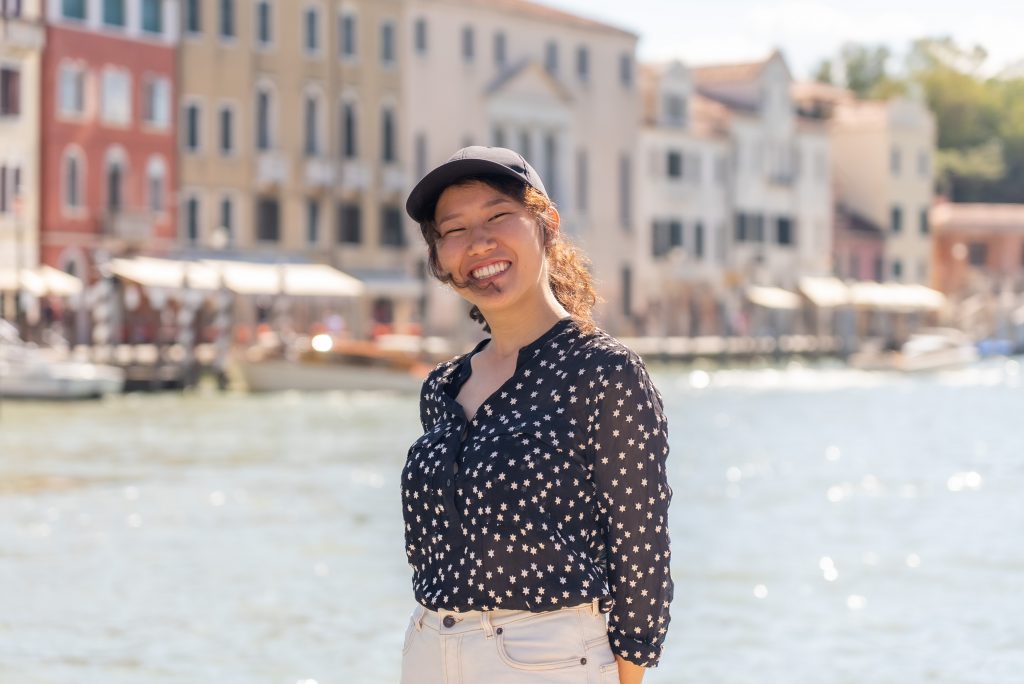
Photo by Masato Sezawa
Learning by doing
When she visited Rivetto’s biodynamic winery in one of Italy’s most famous wine regions, the Langhe of Piedmont, Kosuzu saw children happily running in and around rows of vividly-coloured grape vines surrounded by a myriad other plants. The Rivetto winery, in fact, isn’t only home to highly biodiverse vineyards and fields of many different crops, but also to an elementary school where children learn immersed in nature. Kosuzu reflects on how visiting the school impressed in her the importance of experiential education. “As children, we don’t learn from listening to lectures, we use our five senses to understand things.”
The importance of learning by doing is also underscored by one of Kosuzu’s travel companions, Masatoshi Funabashi, a senior researcher of Sony Computer Science Laboratories, inc. He promotes augmented ecosystems such as Synecoculture, a farming method that produces useful plants while making multifaceted use of the self-organizing ability of the Earth’s ecosystem. Inspired by the Italy trip, Funabashi hypothesises a “new educational philosophy in collusion with practice” called “ReCreation” which is based on enjoyment and children “learning and understanding the mechanisms of food, clothing, shelter and even information and communication with their own hands (to) rebuild, develop or refrain from using them as necessary so that they don’t just use the tools that have been handed down to them, but rebuild them in a sustainable way.” Through this approach, education can give children not only the knowledge but also the freedom to recreate a better world.
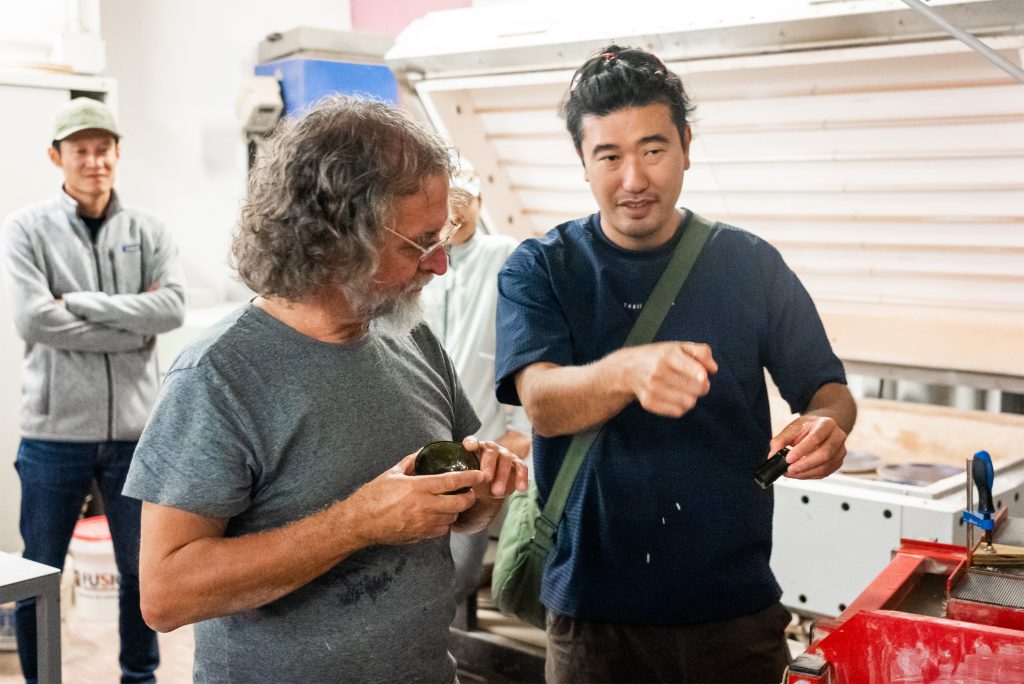
Dr. Funabashi (Right) Photo by Masato Sezawa
Kosuzu may not be a child, but she too is learning by immersing herself in diverse realities. “Joining the trip made me realise there are many people trying to solve issues related to sustainability on a local scale.” In the past, Kosuzu felt somewhat powerless in tackling vast social and environmental issues because local initiatives seemed, at first glance, not to have broad effects. “(However), through the trip, I understood how important it is to start small and captures people’s attention,” thus creating domino effects that can have big ramifications.
Kosuzu was also amazed by the new knowledge she gained in Italy. For example, she met Savorgnano, who created FUD Fattoria Urbana Diffusa, a collective urban farm on Giudecca Island in Venice based on permaculture and Masanobu Fukuoka’s natural farming philosophy. From both Rivetto and Savorgnano, Kosuzu learned about the importance of biodiversity in agriculture – contrary to what she had been taught in school. “It was surprising to know that having lots of plants in the same place allows crops to help each other and also nourishes the soil,” she explains.
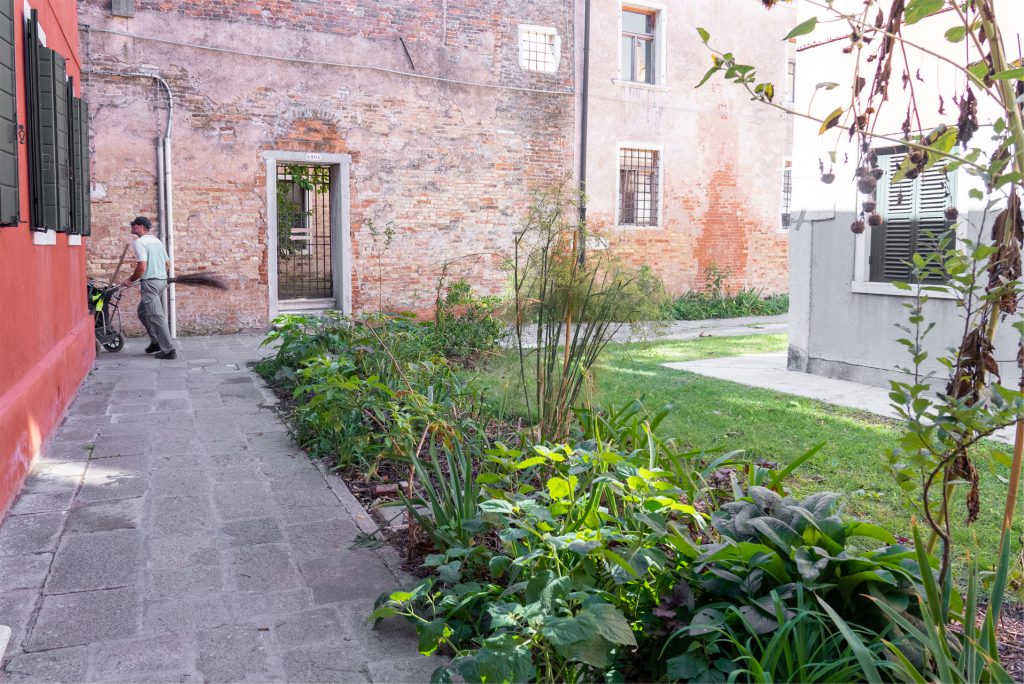
Photo by Masato Sezawa
At Eta Beta, a Bologna-based social cooperative that helps people suffering from addiction, psychiatric disorders and disabilities integrate into society through work, Kosuzu became aware of the importance of art as a form of therapy and expression. As Eta Beta co-founder Joan Crous says, “humans have two brains, one of them being their hands,” and the cooperative offers highly professional training and employment in crafts using recycled materials like glass, wood and ceramics.
The fact that Eta Beta’s glasswork and tableware are used in a three-Michelin-star restaurant also impressed Kosuzu, who says that beautiful things can help move society in a new direction, even if they come from waste. By admiring the cooperative’s unique, entirely handmade crafts, she understood the value of art as a non-verbal form of communication that can reach many people. “Even if people aren’t interested in environmental issues, when they see art, they feel something. Therefore, artists can send a message,” including about sustainable living.
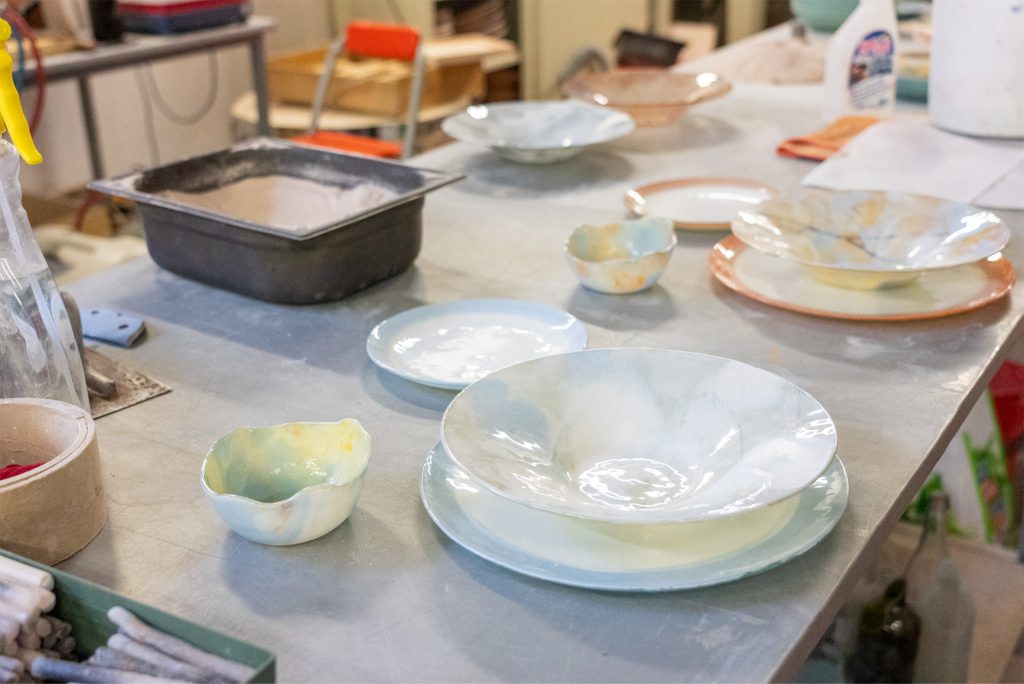
Photo by Masato Sezawa
The seeds of the future
One of Kosuzu’s biggest challenges at the moment is finding a way to incorporate sustainability into her daily life and keep practicing it, while also sharing this experience with others. “Even if I explain to my friends why it is important to be sustainable and that choosing good food nurtures the body and protects the planet, they don’t always understand how to adopt these changes in their daily lives,” she reflects. For experiential education to take root, it’s important that people don’t simply follow, but understand why sustainable actions, such as not using plastic bags, are necessary. “Otherwise, even if rules and habits change, people don’t really understand why they’re doing it, which doesn’t lead to effective, long-term solutions.”
Real change starts from places like Rivetto’s winery, Savorgnano’s farm, Eta Beta’s workshop and Ishizaka’s forest and organic fields – and all those local realities that allow people to experience a more wholesome and sustainable society. Take organic farms. The common denominator uniting them is that they’re places where people can see, touch, taste, hear and even smell a healthier approach to agriculture, therefore, to nourishing people and the planet. Furthermore, as places deeply rooted in the local community, Santome Konjaku Mura’s satoyama and Ishizaka Organic Farm belong to everyone. In other words, people don’t only want to learn about sustainability, but also feel nature’s goodness and enjoy healthy and tasty food. “The most important tool for educating people about sustainability isn’t knowledge, but pure enjoyment first and foremost,” says Kosuzu, capturing the essence of experiential education.
Funabashi agrees, adding that “too often, the mainstream educational system is wasting opportunities for young people to experience the fundamental mechanisms of civilisation in a fun way and create things with their own hands. Living surrounded by things that you’ve made and processed yourself, rather than relying on objects that have been mass-produced and bought, is the first step towards recreating a truly sustainable civilisation.”
Touching the soil, using one’s hands to create a meaningful life. Such small efforts, once accumulated, will lead us to forge a deep connection with people around the world who are tackling the great challenge of improving the Earth and its soil starting from the local dimension. On the back of her encounters with people embracing this shift in Italy, Kosuzu Ishizaka is ready to create her own bright path and help others do the same.
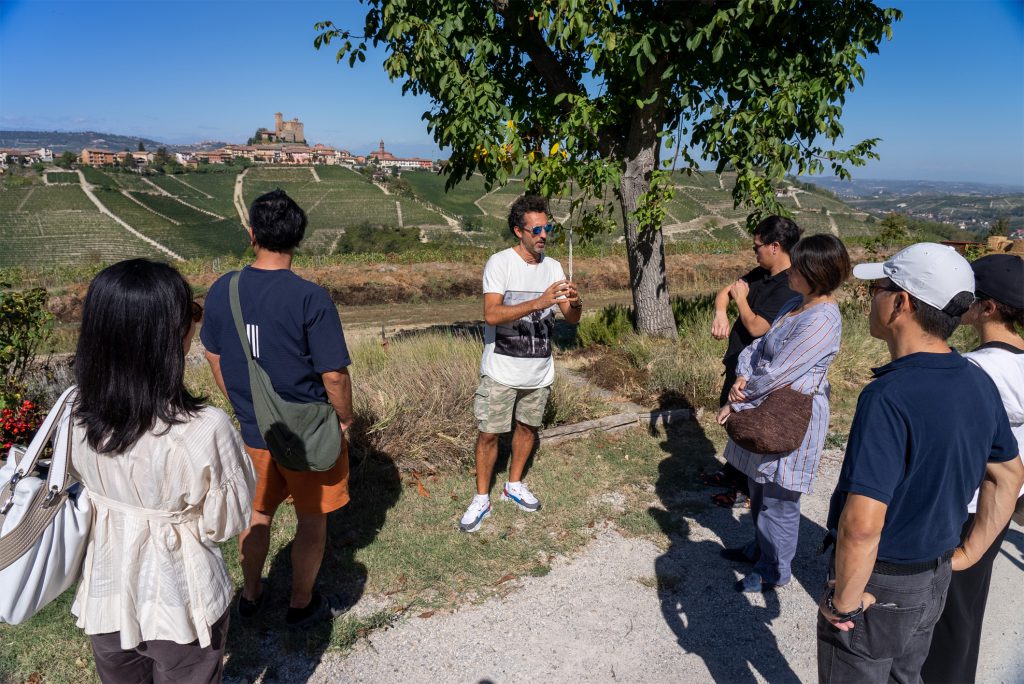
Photo by Masato Sezawa
Ishizaka Organic Farm is promoting various hands-on soil education activities in cooperation with researchers and activists from around the world who are practising activities to improve the soil. We invite you to join ReDAICHI, a members-only circular farm, to learn tips on how to live a soil-friendly life.
The four-part series “Journey through soil full of life” is presented in collaboration
with media partner IDEAS FOR GOOD.
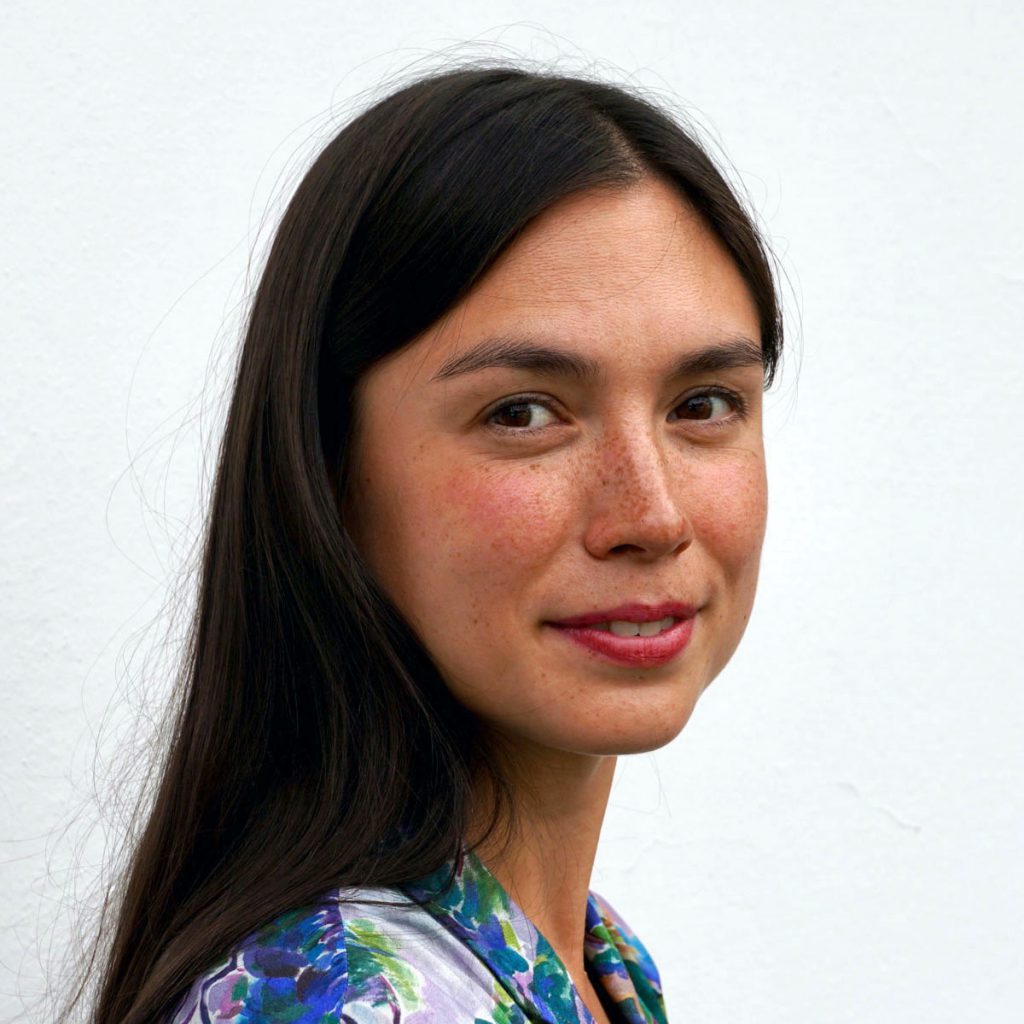
Author: Mara Budgen
Mara Budgen is a Tokyo-based freelance journalist specialised in sustainability, development and human rights. Former Editor-in-Chief of sustainability news website LifeGate.com, she is currently dedicated to bringing social, cultural and environmental stories from Asia Pacific to global audiences in written, audio and video form. She has written for The Japan Times, The Guardian, BBC Travel and Gastro Obscura. You can see her latest work at marabudgen.com.


